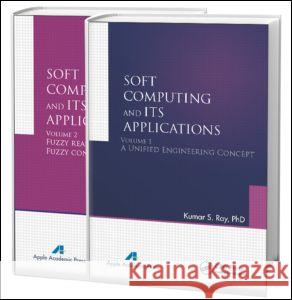Soft Computing and Its Applications: Volumes One and Two » książka
Soft Computing and Its Applications: Volumes One and Two
ISBN-13: 9781771880473 / Angielski / Twarda / 2014 / 1100 str.
This two-volume set explains the primary tools of soft computing as well as provides an abundance of working examples and detailed design studies. The books start with coverage of fuzzy sets and fuzzy logic and their various approaches to fuzzy reasoning and go on to discuss several advanced features of soft computing and hybrid methodologies. Together they provide a platform for handling different kinds of uncertainties of real-life problems. It introduces the reader to the topic of rough sets. The volumes: Discuss the present state of art of soft computing Include the existing application areas of soft computing Present original research contributions Discuss the future scope of work in soft computing This set is unique in that it bridges the gap between theory and practice, and it presents several experimental results on synthetic data and real-life data. The books provide a unified platform for applied scientists and engineers in different fields and industries for the application of soft computing tools in many diverse domains of engineering. The major theme of the volume is to justify the term soft computing, which is essential to handle the vagueness of the real world. The primary tool of soft computing is well discussed with plenty of worked out examples and design studies. The books can be utilized as a standard textbook on soft computing for final-year undergraduate students, postgraduate students, research scholars, professional researchers, and industry R&D groups. The unique feature of the books is that the author clearly presents the state of art with several worked out examples and case studies based on synthetic data and real-life data. The application domains of soft computing are also clearly indicated. The volumes can be used as a textbook and/or reference book by undergraduate and postgraduate students of many different engineering branches, such as electrical engineering, control engineering, electronics and communication engineering, computer sciences, and information sciences."











